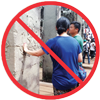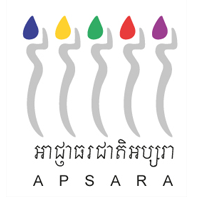Angkor was the capital of the Khmer Empire (9th to 15th
centuries) and once the largest city in the world (12th
century). Today, Angkor is still an active spiritual site
for Buddhists and citizens who engage in daily worship,
prayer and meditation. Angkor is also a living site where
over 130,000 inhabitants have lived for many generations.
The APSARA National Authority has been responsible for the
conservation and sustainable development of Angkor since
1995. One of its goals is to harmonize tourist experiences
with public safety and respect towards the community. This
official Visitor Code of Conduct was designed to support
this goal. It was developed in cooperation with local
communities, visitors, tour guides and restoration teams.
To enhance your experience and to preserve Angkor for
generations to come, we kindly urge you to observe the
following points:

Dress Code

Sacred Sites

Smoking and Littering

Monks

Monuments

Restricted Areas

